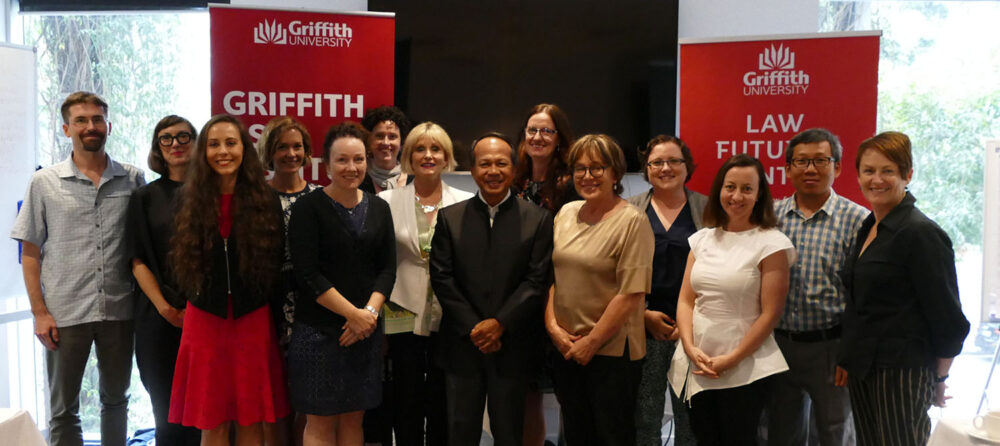Multiple consequences of the violence and conflict that engulfed Cambodia during and surrounding the Khmer Rouge regime (1975-1979) continues to be experienced. The Cambodian Government and the United Nations agreed to establish the Extraordinary Chambers of the Courts of Cambodia (ECCC) in 2003, with jurisdiction to hear charges against the senior leaders of the Khmer Rouge regime. Numerous hopes and expectations were vested in the ECCC: an end to impunity, reconciliation and rebuilding, improved local governance and strengthened rule of law, and respect for human rights.
On 7 December 2018, the Griffith Asia Institute and Law Futures Centre (LFC) held a roundtable addressing the role of the ECCC in Cambodia and beyond. The event was designed to explore these contested inheritances and to engage with work-in-progress on aspects of the ECCC and its operations.
The format for the roundtable involved participants, including HDR students, early-career and more senior researchers, sharing their current work-in-progress. In the afternoon a distinguished panel critically discussed the idea and reality of legacies after mass conflict and transitional justice. The panel was chaired by the LFC’s Susan Harris Rimmer of Griffith Law School, with the participation of Mr. OK SEREI Sopheak, the Chair of Transparency International Cambodia; Professor Renée Jeffery, Griffith Asia Institute; and Professor Susanne Karstedt, School of Criminology and Criminal Justice.
A range of themes and questions were addressed throughout the day. These included the competing understandings of “legacy” and relationships between history, the passage of time, transitional justice and judicial legacies. Discussions were linked to issues regarding the location of the ECCC, as well as the perspective of victims, including those who have participated in the ECCC’s trials as “civil parties” and ECCC reparations projects. It was recognised that political context has a significant impact upon any court and that the past and current political complexities in Cambodia and internationally have deeply influenced the ECCC.
The participants were enthusiastic about pursuing collaborations arising from discussions throughout the day and evening. A report showing the research interests presented by each of the participants will be circulated to foster further collaboration.













